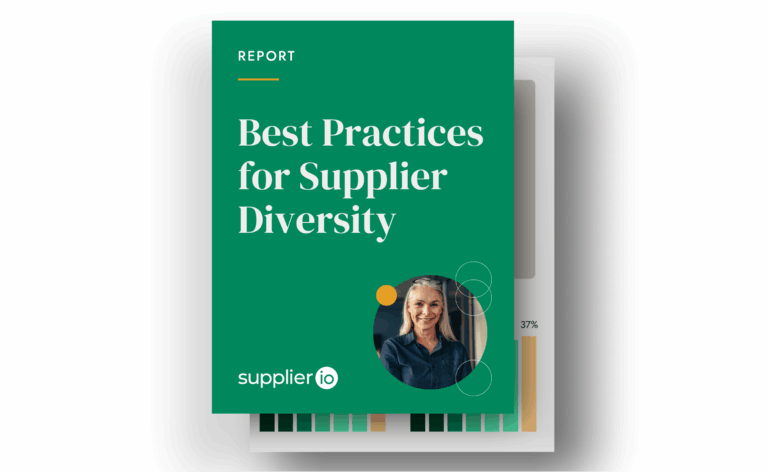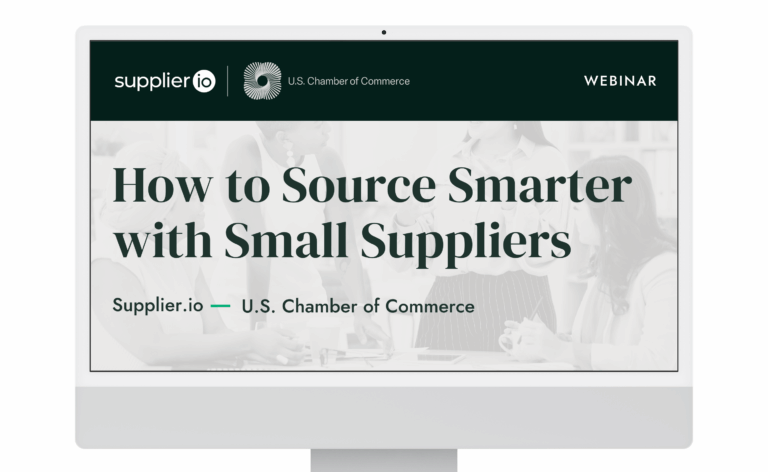Sourcing Smarter: Why Small Businesses are Key to Supply Chain Success
In a recent webinar hosted by Supplier.io, Carmen West, Vice President at the U.S. Chamber of Commerce, shared why local small businesses matter—and how procurement teams can better engage them.

Small businesses are the backbone of the U.S. economy—accounting for 99% of all businesses, nearly half of all private sector employment, and 44% of GDP. But, in procurement, they’re also a strategic asset.
Partnering with small and local suppliers can improve resilience, unlock innovation, and help meet business and community goals.
In a recent webinar hosted by Supplier.io, Carmen West, Vice President at the U.S. Chamber of Commerce, shared why local small businesses matter—and how procurement teams can better engage them.
Why small businesses deserve a bigger seat at the table
Small businesses bring agility, cost competitiveness, and innovative thinking—qualities that are increasingly important amid ongoing supply chain disruptions, inflation, and shifting trade policies. As Carmen West noted:
“Small businesses are nimble. They often pivot faster than large companies and can provide tailored solutions that help organizations meet complex needs. Supporting them isn’t just the right thing to do, it’s smart business.”
Beyond resilience, sourcing locally helps reduce lead times, strengthens community relationships, and supports broader ESG and DEI goals.
Best practices for sourcing with small businesses
To build stronger connections with small suppliers, companies should focus on three key strategies:
1. Leverage accurate supplier data
Many companies say they struggle to identify qualified small suppliers. A major barrier? Incomplete or outdated data. Carmen emphasized:
“The first step is knowing who’s out there. Using platforms like Supplier.io helps companies see which small businesses already exist in their network—and discover new ones that align with business goals.”
Accurate data unlocks visibility and helps sourcing teams take action with confidence.
2. Engage internal stakeholders
Sourcing success starts with cross-functional collaboration. Procurement teams should engage top spend owners and share insights on the business value of small suppliers.
“When teams understand the ‘why,’ they’re more likely to champion the ‘how.’ Show up with data and demonstrate how local sourcing improves performance, reduces risk, and aligns with corporate priorities,” said West.
3. Make it easy to find and work with small suppliers
Simplify your supplier discovery and vetting processes. Tools like Supplier Explorer and SupplierOne offer access to over 10 million small, diverse, and sustainable suppliers—with clear profiles, certifications, and performance metrics.
As Carmen put it:
“We have more tools than ever to connect the dots between buyers and small businesses. When you remove the friction, you open the door to real partnerships.”
Final thoughts
As procurement evolves, small business sourcing is no longer a niche initiative, it’s a competitive advantage. By investing in better data, aligning stakeholders, and streamlining supplier engagement, companies can unlock the full potential of small business partnerships.
Ready to find your next great supplier? Explore how Supplier.io can help.




